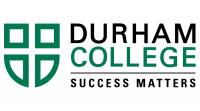Mechanical Engineering Technician – Non-Destructive Evaluation (fast-track)
Program Overview
In this program designed specifically for applicants with existing academic credentials, students with a degree in Science can expand their knowledge of the non-destructive evaluation industry and complete an advanced diploma in fewer semesters. Students learn about materials and specific testing methods in order to examine cars, trains, airplanes, spacecraft, towers, bridges, ships, power plants and amusement park rides to identify and analyze possible defects. With education, training, and practical experience under your belt, you will be prepared to begin your training in industry as an inspector to test and evaluate components for internal or external flaws, using advanced technology including visual inspection and radiology/radiographic techniques, allowing people to live and work in a safe environment. As a graduate, you will become an integral part of assuring the safety and integrity of our infrastructure, components and structures that are built or are in service in our society.
Program Details
If you are domestic or internationally educated student with a Bachelor of Science (BSc) degree you may be eligible for a compressed, fast-track opportunity to complete your diploma requirements in two semesters.
This program will provide you with the training and hands-on experience necessary to begin a career in non-destructive evaluation/testing (NDE/NDT). In combination with your degree those skills will allow for you to assess the data collection from the inspections and provide reports to senior management.
NDT inspectors engage in the examination and scientific testing of cars, trains, airplanes, space craft towers, bridges, ships, power plants, amusement park rides etc. You will learn how to examine these objects without causing damage or impairment to their future use, hence the term non-destructive. The purpose of the testing in this fashion is to detect possible internal or external defects and examine the properties of the object.
At the end of the program, you will be eligible to take method specific certification exams regulated by the Canadian General Standards Board if you have 70 per cent or better in each NDT course.
Intakes
- Sep
Application Processing Time in Days: 25
Minimum English Language Requirements
| English Level Description | IELTS (1.0 -9.0) | TOEFL IBT (0-120) | TOEFL CBT (0-300) | PTE (10-90) | |
|---|---|---|---|---|---|
| Expert | 9 | 120 | 297-300 | 86-90 | |
| Very Good | 8.5 | 115-119 | 280-293 | 83-86 | |
| Very Good | 8 | 110-114 | 270-280 | 79-83 | |
| Good | 7.5 | 102-109 | 253-267 | 73-79 | |
| Good | 7 | 94-101 | 240-253 | 65-73 | |
| Competent | 6.5 | 79-93 | 213-233 | 58-65 | |
| Competent | 6 | 60-78 | 170-210 | 50-58 | |
| Modest | 5.5 | 46-59 | 133-210 | 43-50 | |
| Modest | 5 | 35-45 | 107-133 | 36-43 | |
| Limited | 4 | 32-34 | 97-103 | 30-36 | |
| Extremely Limited | < 4 | < 31 | < 93 | < 30 |
Admission Requirement / Eligibility Criteria
- Honours Bachelor of Science degree in either mechanical engineering, electrical engineering, material science or physics including a credit in physics, calculus, statistics and electricity
- Course Type: Full Time
- Course Level: Post Graduate Diploma or Certificate
- Duration: 01 Year
-
Total Tuition Fee:
13574 CAD
Annual Cost of Living: 20635 CAD
Application Fee: 95 CAD

